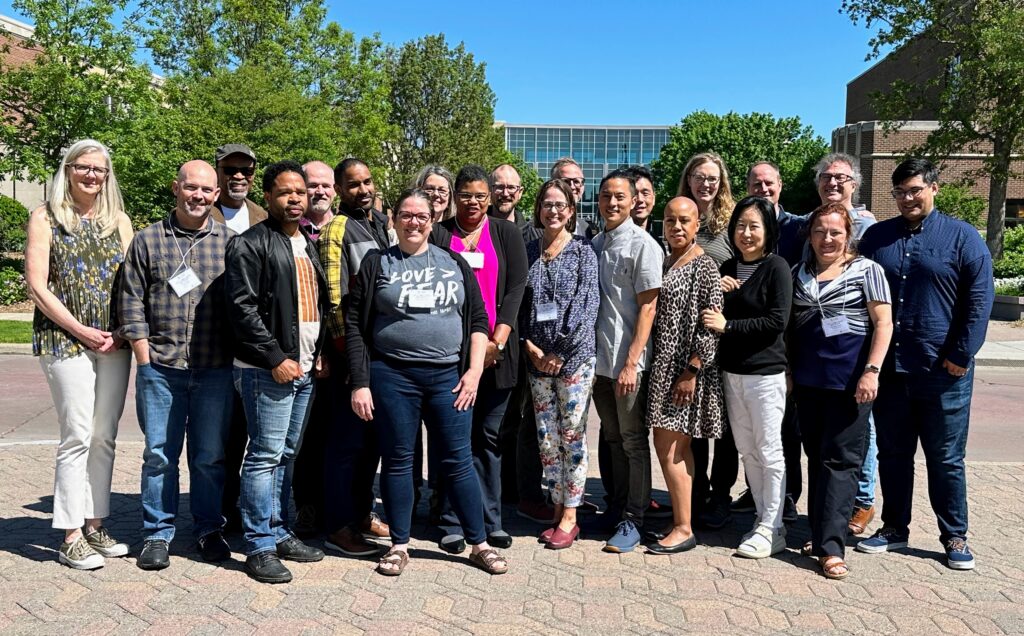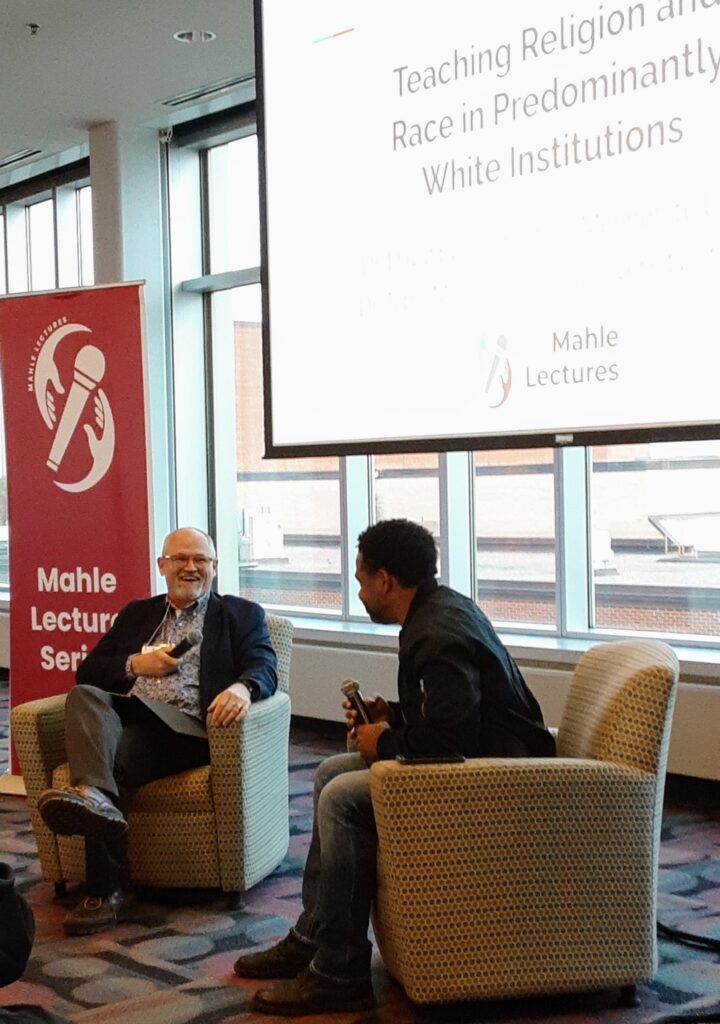May 18 – 20
Saint Paul, Minnesota
The Lift Every Voice and Teach (LEVaT) workgroup convened a colloquium hosted by Hamline University in Saint Paul from May 18-20.
The colloquium included twenty-six participants from twenty-one church-affiliated and Christian colleges and universities in disciplines ranging from Biblical studies and theology to anthropology, sociology, history, English literature, and theater.
The Twin Cities has particular resonance for this group whose teaching engages undergraduate students in the areas of race, memory, and reconciliation in the aftermath of the international civil rights movement sparked by the murder of George Floyd.
The group started with a pilgrimage to George Floyd Square. Guided by members of the community, we learned of the complexity of the community’s response to the murder, the influx of protestors, the absence of police and emergency services, the struggle to save businesses, and the threat from white supremacists. We then had an evening of conversation and table fellowship with the members of the Irreducible Grace Foundation (IGF) at their new Black Youth Healing Arts Center in the Frogtown neighborhood of Saint Paul. IGF creates safe spaces “provides mentoring, life skills, employment, self-care practices, and safe space for teens and young adults of color.” Started in 2012, the work gained new urgency with the impact of the Covid pandemic and the protests following the murder of George Flloyd. The naming of the foundation came from the fundamental theological insight that a person’s circumstances do not reduce their worth (Irreducible) and all people should receive assistance: that is “unmerited favor” (Grace).
We spent the next two days drawing our colleagues into the conversions the workgroup has been having over the last two years. These were rooted in the theological challenge for teachers laid out by Dr. Willie Jennnings. Jennings argued that Christian education must free itself from the goal of education being to shape its students in the image of a white, self-sufficient man. Instead, our classrooms and institutions of higher education should become redemptive spaces for all people.
We focussed on five areas:
- Structural Change
Beyond Institutional Performative Unity: Building a more diverse, inclusive, and equitable Christian higher education, with a specific focus on self-care and racial healing for faculty of color
- Christian Perspectives
Christian Perspectives on Teaching Race: An apologetics for teaching about race and white supremacy in the classroom
- Narratives
Re-Thinking Our Own Narratives: Telling more truthful stories about positionality and race
- Diverse Classrooms
Teaching Race in Diverse Classrooms: Approaches that teach to all students in the room, minimizing hurt and seeking redemptive possibilities for all constituencies
- Positionality of Faculty Teaching Race
Recognizing power and the possibilities to decolonize, diversify, and amplify unheard voices
On Friday evening the LEVaT workgroup co-hosted a public keynote workshop with the Mahle Lecture Series. Dr. David Evans (Eastern Mennonite University) and Dr. Tobin Miller Shearer, (University of Montana) engaged us in the conversation “Teaching Religion and Race in Predominantly White Institutions” taking their 2017 article “A Principled Pedagogy for Religious Educators” as our starting point. We were joined by faculty, students, and administrators from Hamline University as well as professors from colleges in the Twin Cities. Evans and Shearer led us through a discussion of the classroom as an “unsettling” place of spiritual discipline and formation with their three categories of Principled Dislocation, Supported Relocation, and Sustained Cultivation.
LEVaT will gather together the threads of our conversation for publication later in the year.


